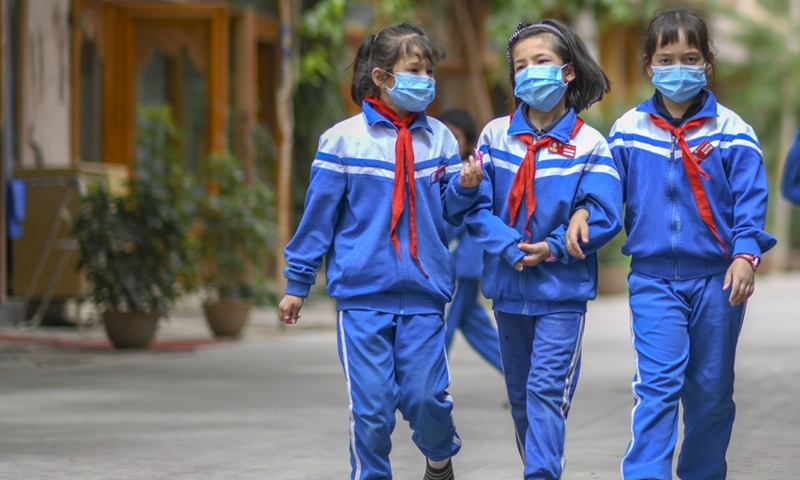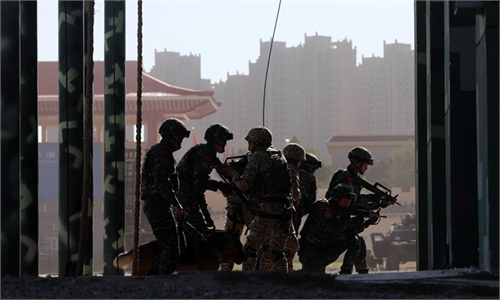Documentary on 'toxic' textbooks in Xinjiang puts China's education ministry on high alert

Children walk in a street after school at a scenic spot in the ancient city of Kashgar, northwest China's Xinjiang Uygur Autonomous Region, May 16, 2020.(Photo: Xinhua)
China's Ministry of Education will step up its management over school textbooks after a documentary on the anti-terrorism fight in Northwest China's Xinjiang Uygur Autonomous Region revealed, for the first time, that problematic Uygur language textbooks had poisoned students' minds for a long time.Teaching materials related to the long-term peace and stability of China and the compilation of textbooks should be regarded as an important political task, Zheng Fuzhi, deputy education minister, said at a Monday meeting attended by representatives from education departments, colleges and universities, publishing industry and textbook review experts.
Zheng required building up stronger teams to focus on textbook management, compilation, and review. A standard management system with more specific criteria will also be set up to serve different studying phases and different teaching materials, he said.
He also required that the working mechanism covering textbook compilation, review and use be strictly implemented and constantly improved.
The representatives at the meeting also introduced relevant measures and practices of stepping up textbook management, which include implementing multi-level review systems, establishing political review teams with experts from different ethnicities and setting up cross-department cooperation.
The representatives agreed to draw lessons from the problematic textbook incident in Xinjiang, and to prevent such incidents from happening again.
The documentary, named The War in the Shadows and released on April 2, revealed crimes committed by some officials in Xinjiang who loudly condemned terrorism, extremism and separatism in public, but provided financial and intelligence support for terrorist activities in private.
According to the documentary, Sattar Sawut, then head of the regional Education Department, organized a criminal group to spread extremist ideas and incite ethnic hatred through composing Uygur language textbooks, in order to facilitate the spread of terrorism and extremism in Xinjiang. He was arrested in May 2017 and sentenced to death with two years' reprieve for committing the crimes of splitting the country and taking bribes.
Under Sattar's leadership, thousands of problematic textbooks, containing contents related to terror, violence and religious extremism, and ethnic hatred, had been published in the region for over 13 years.


